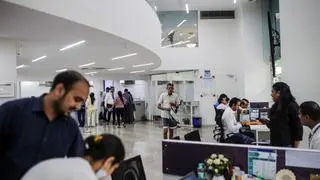While unemployment numbers grab headlines, a recent employment trend that has largely gone unnoticed is the rise of flexi-staffing in India.
The Annual Survey of Industries (ASI) reported that the percentage of contract labour in manufacturing has been increasing, with 98.4 per cent of the organised factories surveyed employing contract workers in FY20 compared to just 28.3 per cent in FY12.
With the rapid evolution of technology, the demand for highly skilled labour, which can be immediately deployed in any specific technical project, has also been on the rise. India has been slowly but steadily catching up with developed countries on the idea of having a more dynamic and flexible workforce. According to the Indian Staffing Federation (ISF), the number of flexi or formal contractual workers in India, employed by staffing companies, is expected to reach 10 million by 2030 from 5-5.5 million at present, reflecting the huge demand for such workforce.
TeamLease Services is at the forefront of this structural shift taking place in the Indian employment scene. It is a market leader with over 20 years of consistent track record in the formal flexi-staffing industry. It has a well-diversified client base across key economic sectors such as manufacturing, BFSI, IT, telecom, etc. Its national presence and operational efficiency are critical in achieving the economies of scale imperative in the low-margin staffing business.
Being an asset-light business with a focus on efficient working capital management has enabled superior cash conversion and return ratios. The stock is down around 13 per cent YTD and offers investors the opportunity to start accumulating on dips at reasonable valuations. It is currently trading at 28x next 12-month earnings (Bloomberg consensus), a moderate discount to its three-year average of 30x.
Market leader with established track record
While staffing services industry is highly fragmented with many regional firms catering to low skilled labour requirements, Teamlease has emerged as a market leader (around 6 per cent share) with a national presence (7,500+ locations across 28 States) in the organised staffing space. Founded in 2001, it currently employs 3 + lakh associates and trainees, providing skilled labour to over 3,600 clients in various industries.
The company gets a commission from the salary paid to associates placed with clients based on the terms of the contract. It has three broad segments: 1. general staffing comprising staffing, temporary recruitment, payroll and apprenticeship (around 91 per cent of FY23 revenue), 2. specialised staffing comprising IT and telecom staffing (~7 per cent), and 3. other HR services comprising regulatory compliance, training, job portal, education technology and SAAS-based compliance (~2 per cent).
Economies of scale
The company has managed to build an ecosystem around its core business to create a steady supply of employable resources. The investments in IT infrastructure have helped improve productivity, reflected in the rising number of associates working with the clients who are managed by single core employee of Teamlease. It stood at 366 in Q3FY24, up from 260 five years ago in Q3FY19. This translates to better margins in what is typically a low-margin industry. Economies of scale is a crucial point of difference for TeamLease since there are very few companies in the staffing business who can leverage operational efficiency.
Growth expectation
Because of the significantly high revenue contribution from the general staffing business, the company’ s revenue growth is largely determined by the growth in the number of associates and trainees. As of Q3FY24, TeamLease had over 2.58 lakh general staffing associates (5-year CAGR of 11 per cent) and 43,150 trainees (5-year CAGR of negative 4 per cent). The company was able to recover from the impact of the Covid pandemic to post double-digit CAGR in associates because of its well-diversified client portfolio across sectors. In addition to the pandemic, the withdrawal of the National Employability Enhancement Mission (NEEM) scheme in December 2022 impacted the number of trainees significantly.
Although IT hiring is expected to remain softer in CY24, hiring by global capability centres (GCC) is expected to offset some of the negative impact. Given the robust economic outlook for India over the next decade, the long-term demand for skilled labour is expected to remain strong.

Financials and valuation
TeamLease reported revenue from operations of ₹7,870 crore in FY23, 21 per cent YoY growth and a five-year CAGR of 12 per cent. In FY21, when the impact of the Covid pandemic and slowdown in the overall economy was at its peak, revenue declined 5 per cent YoY. Apart from that, the company has delivered consistent topline growth with a ten-year CAGR of 18 per cent. In 9MFY24, it reported revenue of ₹6,890 crore, 18 per cent YoY growth and is expected to end FY24 with around 20% per cent growth at around ₹9,310 crore.
Given the nature of the staffing business, margins are typically muted compared to other industries. Overall PAT margin for TeamLease is usually in the range of 1-2 per cent.
Because of its consistent financial performance, Teamlease has historically traded at a premium to its peers, Quess (19x next 12-month earnings) and SIS limited (16x). TeamLease is currently trading at 28x, a moderate discount to its three-year average of 30x. Market multiples could be under pressure in the near term due to fluctuations in key sectors such as IT, which could offer the opportunity for new investors to start buying at lower valuations. Given the strong fundaments, consistent operational performance, and expected future earnings growth, we recommend that investors accumulate the stock at dips.








Comments
Comments have to be in English, and in full sentences. They cannot be abusive or personal. Please abide by our community guidelines for posting your comments.
We have migrated to a new commenting platform. If you are already a registered user of TheHindu Businessline and logged in, you may continue to engage with our articles. If you do not have an account please register and login to post comments. Users can access their older comments by logging into their accounts on Vuukle.